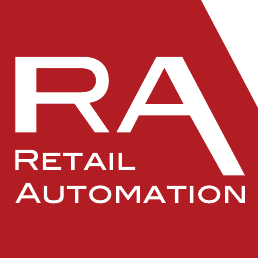Published: Saturday, October 20, 2012, 8:58 p.m.
Updated: Saturday, October 20, 2012
West Virginia University students waited in line to fill drinking water bottles for free after Evive Station LLC installed its first four dispensing kiosks there.
That was in April, and after a successful test, the South Side startup company is preparing to deliver 15 more kiosks to the Morgantown campus in December as it continues to shop its business plan that combines free water, waste reduction and advertising at academic sites in Pittsburgh and California.
Tackling the problem of throwaway, single-use water bottles, Evive founder and WVU graduate Thomas L. Petrini came up with an idea in 2007, while he was studying for a master's degree in sustainability at Duquesne University, for a machine that would clean and fill college students' water bottles at no cost as it delivered targeted messages on a TV screen.
Evive began its test at WVU by giving away about 4,000 stainless steel bottles equipped with radio frequency identification, or RFID, tags.
Starting in December, newer-model plastic reusable bottles will be sold for $10 online on Evive's website, and each buyer will fill out a profile with details such as his or her academic major, expected graduation year and interests such as skiing or video games.
Then, when the student stops for a drink, the RFID tag at the bottom of the 20-ounce, insulated bottle is swiped on a reader, a personal identification number is entered and the bottle is cleaned and filled with purified chilled water, or simply filled.
Machines filter and dispense water from public lines, and fillups are unlimited.
The process takes about a minute, and at the same time, ads chosen to suit the student, based on his or her profile, are shown on a 32-inch screen. Some will be for products or travel, while others might carry messages from employers or the university, targeting finance or nursing majors, for example.
Questions don't go further than what students already might have posted on their Facebook pages, Petrini said, and the PIN protects their profiles from being hacked.
"Our only intent is to make the advertising interesting to the user, and relevant to the user," Kosar said, addressing privacy concerns that some may have over the use of RFID tags. In some applications, the tags can be used to track objects that use them.
The test has been a hit at WVU, with an enrollment of almost 30,000.
"The students were all excited, and we constantly get requests for more machines across the campus," said Clement Solomon, WVU's director of sustainability, who praised Evive's technology as a revenue-generating way to cut down on throwaway bottles.
Also, "This is proactive. A lot of strategies today are, let's create waste (such as a plastic bottle), then let's find a way to reduce it or manage it," he said. "The more innovative way is you avoid creating waste in the first place."
Len Kosar, a former General Electric Co. and Erie private equity firm executive who became Evive's CEO a month ago, said the company is talking with Duquesne, Carnegie Mellon University and the University of Pittsburgh about installing kiosks on their campuses.
On the West Coast, given the intense interest in reducing waste there, Evive is working to try to place its machines at the University of Southern California.
Universites won't pay for the kiosks. Evive will maintain them and track their use remotely.
And the company won't pay the universities for the water it taps and dispenses, said Petrini, chief technology and strategy officer. But the tradeoff is that students aren't running gallons of water in dormitory sinks to wash their bottles and aren't awkwardly trying to fill them at water fountains.
Evive's cleaning and filling process uses a half gallon. "There is savings on the washing, and about the same on the filling," Petrini said.
But the academic institutions will share in advertising revenue, at percentages to be negotiated. UPMC, State Farm, Consol Energy Inc., Venture Outdoors and some others have provided ad content for the WVU test, and the paid-ad model kicks off in January, Kosar said.
Evive's founders developed the stations, or kiosks, through a partnership with Daedalus Product Development of Shadyside. Singapore-based Flextronics manufactures the kiosks in Creedmoor, N.C.
The machine itself is in its third generation -- with the latest model a little sleeker than its predecessor, to fit more easily in a hallway. At 72 inches high, it's roughly the size of a soda machine.
Thirty stations should be installed at campuses in January.
Evive has eight employees and works with 10 to 15 contractors, Kosar said. Rapid growth is expected in 2013 with more positions added. The company has raised almost $4 million from "angel" or early development, and other investors.
Evive is looking beyond college campuses to fitness centers or corporations where its machines could be installed, he said.
Kim Leonard is a staff writer for Trib Total Media. She can be reached at 412-380-5606 or [email protected].


